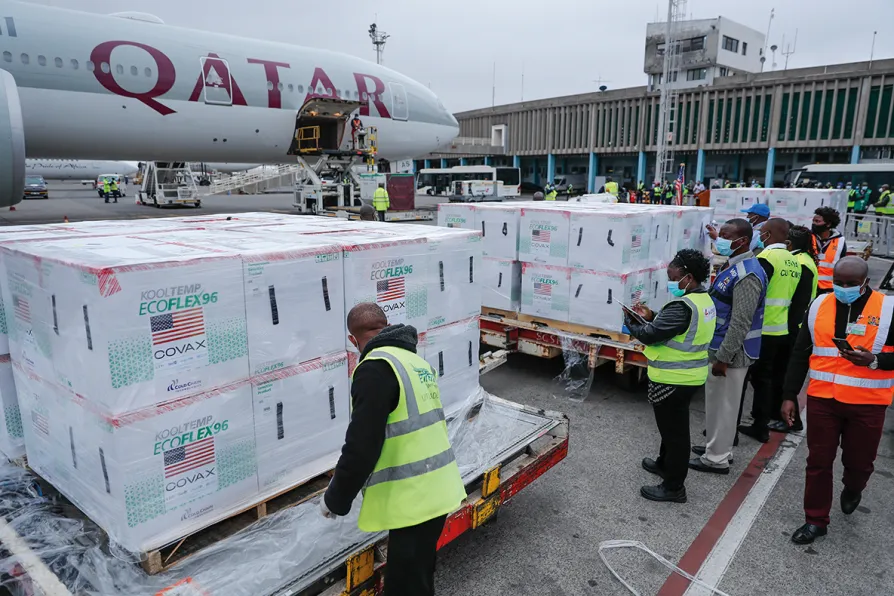By pressuring Mexico to halt oil shipments, Washington is escalating its blockade of Cuba into a direct bid for economic collapse and regime change, argues SEVIM DAGDELEN
A people’s vaccine not a profit vaccine
Hoarding by the West, in league with big pharma, has seen Africa in particular starved of Covid vaccines — we need an international health service free at the point of delivery, writes ROGER McKENZIE

 Workers in Nairobi, Kenya, receive boxes of the Moderna coronavirus vaccine sent from the US, September 2021
Workers in Nairobi, Kenya, receive boxes of the Moderna coronavirus vaccine sent from the US, September 2021
THE stark reality is that of the more than five billion Covid-19 doses administered globally only 2 per cent have been received in the continent of Africa.
In the US, by comparison, around 52 per cent of people are fully vaccinated and in the European Union it is 57 per cent.
Scotland and Wales have vaccinated around 90 per cent of those aged 16 and over with at least one dose while England has reached around 88 per cent and Northern Ireland in the region of 86 per cent.
Similar stories

1943-2025: How one man’s unfinished work reveals the lethal lie of ‘colour-blind’ medicine

The West’s dangerous pesticide dumping in Africa is threatening biodiversity, population health and food sovereignty, argues ROGER McKENZIE

Xenophobic hysteria over the statistically insignificant number of small-boat crossings deliberately conceals how capitalism manipulates population flows for profit — if we can explain that, we’ll beat the right, argues NICK WRIGHT











